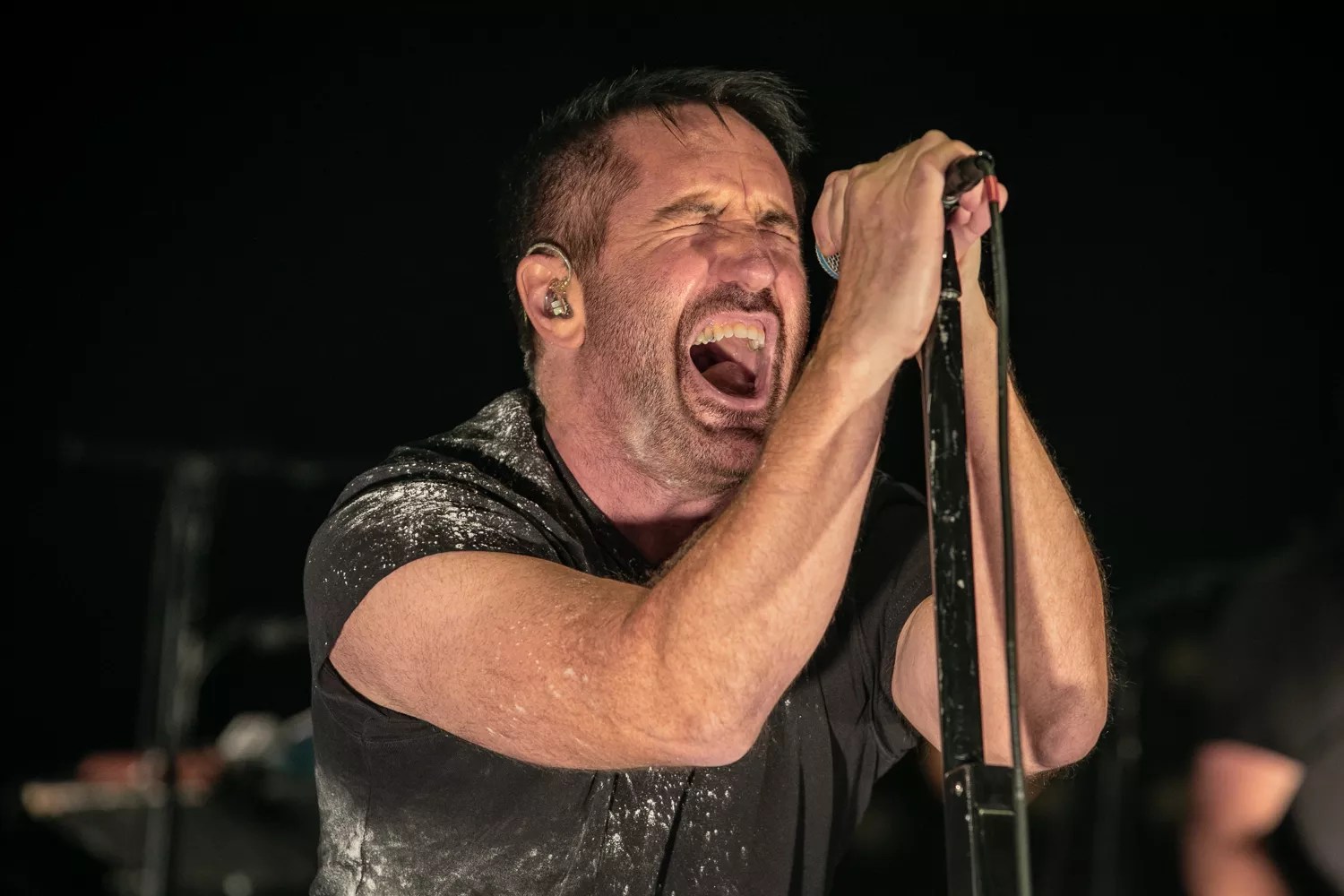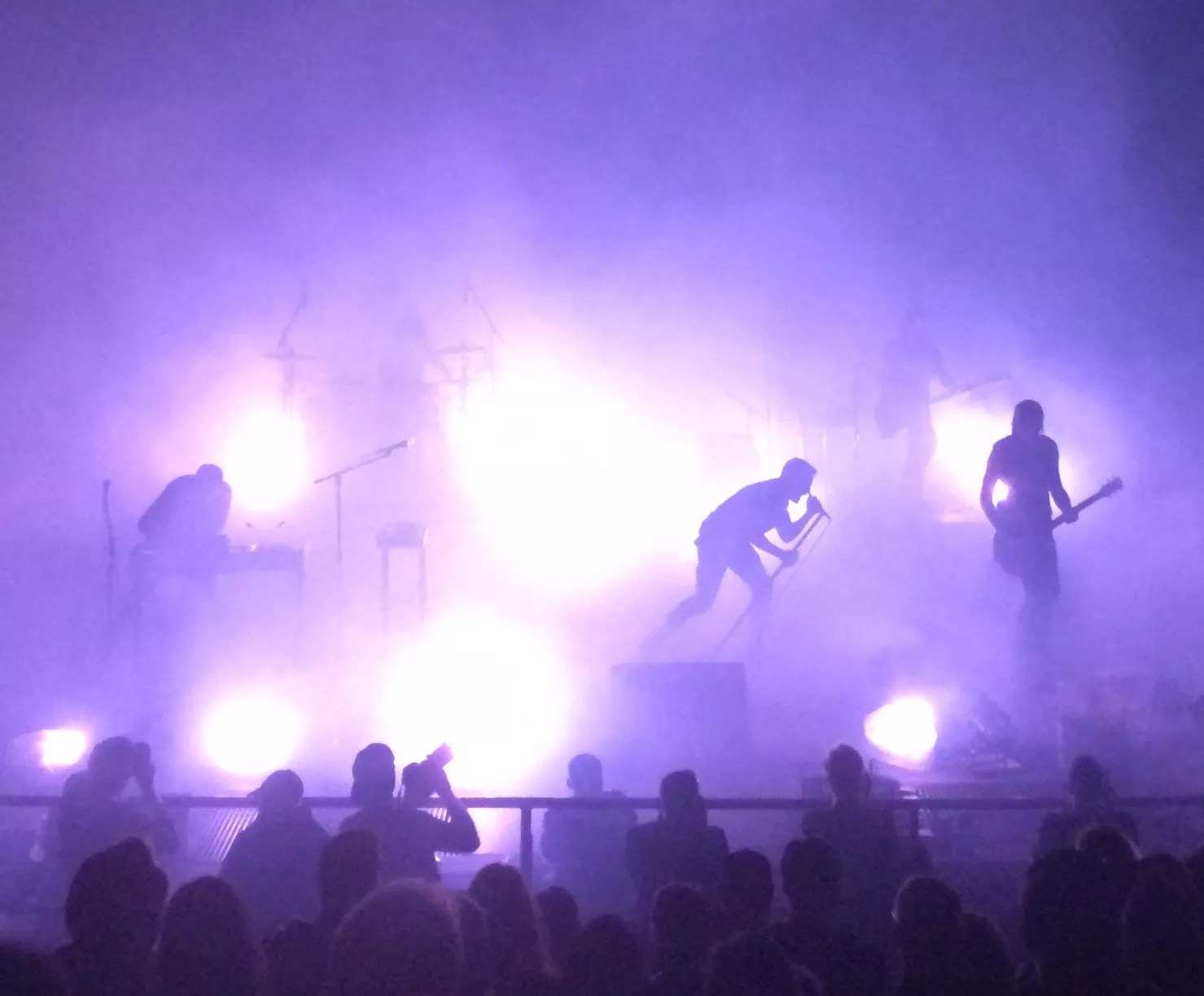
Aaron Thackeray

Audio By Carbonatix
The Jesus and Mary Chain took the stage early at Red Rocks on September 19 as the sun sank and promoters stressed about severe storms. Tobacco, originally penciled in as one of two opening acts for Nine Inch Nails, had its set canceled so Trent Reznor and company could start and end before the expected rain.
The rain never came.
The Jesus and Mary Chain, loud and brash as ever, played a typically short 35-minute guitar-heavy set that peaked with a defiant “I Hate Rock ’n’ Roll” and a wall of feedback left in its wake.
By 8 p.m., Reznor – an athletic 53 years old, looking not a day over forty — and his band were already tearing through “Mr. Self Destruct,” a 1,000-mph industrial-metal song from NIN’s landmark 1994 album, The Downward Spiral. The black-and-white video feed on the Red Rocks big screen was a nice touch.
Now, 24 years after Nine Inch Nails reached its height of acclaim and commercial exposure with Downward — which boasts lyrics that appeared multiple times in the journal of one of the Columbine shooters — I found myself jotting down a timeless question: Is dark music medicine?
Reznor’s current band — which particularly soared during the wild, funky endings to “Piggy” and “Closer” — is ridiculously talented, especially drummer Ilan Rubin, who could obviously play anything from jazz to the most challenging progressive metal. Watching this lineup blaze through songs like “Burn,” from the unforgettable Natural Born Killers soundtrack, was something much more than nostalgic; heavy music this liberating — imagine 9,000 people screaming “I’m gonna burn this whole world down” — and played so incredibly well offers another world to crawl into when this one hurts.

Nine Inch Nails at Red Rocks.
Adam Perry
That release and escape were crucial to my survival as a teenager and equally necessary now, more than twenty years after I was grounded for sneaking out to see Nine Inch Nails open for my total obsession at the time, David Bowie.
Performing “Head Like a Hole” last night, Reznor and his band delivered so much energy and volume it seemed that not only the sound system but the sky might explode. Though the group has released nine remarkable albums, Nine Inch Nails’ live shows rely heavily on Downward Spiral material, and that makes sense. The angsty techno-pop of Pretty Hate Machine put NIN on the map with a couple of left-field MTV hits and a brutal kind of sentimentality that resonated with anyone who grew up in the ’90s and went through a breakup. However, the instrumentation and energy — where Master of Puppets meets Purple Rain — Reznor and company executed on “Head Like a Hole” last night revealed what the song might have sounded like had it been recorded for The Downward Spiral, on which Reznor juxtaposed his creative vision with a mix of high-end technology and gritty rock-and-roll mania.
2013’s “Copy of A,” the Bowie gem “I’m Afraid of Americans” and a few other tunes also fell into that sweet spot last night at Red Rocks. The crowd was decked out in ’90s goth fashion, and the front rows were filled with folks in leather pants, elaborate wicked makeup and the ubiquitous black T-shirt. It was easy to be transported back to high school (and the sight of Reznor covered in mud at Woodstock ’94) during the NIN classic “Happiness in Slavery” — arguably Reznor’s signature song.
An at-capacity crowd at Red Rocks being urged by the frontman to sing “Nothing can stop me now/’cause I don’t care anymore” over and over as the song “Piggy” came to a close felt a little like group therapy.
After thirty years of Nine Inch Nails — a span during which Reznor has run laps around many of the acts he influenced — the other question that loomed for me all night was whether fans of dark music are in love with sadness and pain or in love with the tangible release this kind of music delivers.
Release feels good, but does it necessarily heal? And does it matter?